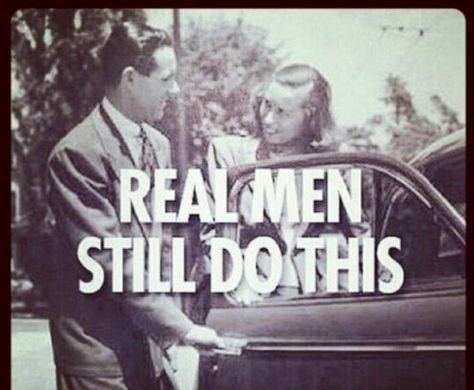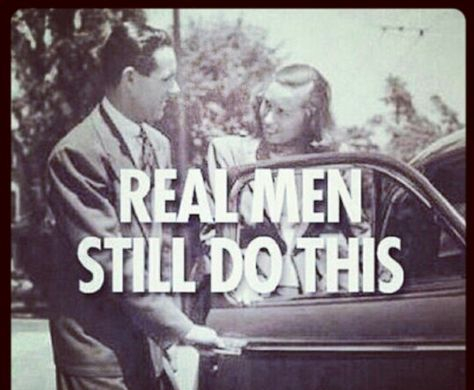By Jonny Craig
Let’s begin with a scenario: It’s the end of his lunch hour, and Gary from IT is walking the short distance back to his place of work after meeting an old school friend at the park for tea and a Twix. Just behind him, on the same stretch of pavement approaching the office, is his colleague, Sarah from HR. As Gary pushes his way through the heavy, frameless office-door, he glances back, seeing Sarah.
Gary freezes. After a split second’s anxious deliberation, he decides that the distance separating him and Sarah is sufficiently small to warrant his pausing to hold the door for her to enter. He doesn’t really know Sarah. They’ve only ever properly talked once, and only then because he had been called in to update her computer’s defective Anti-Virus software. As she gets to the door, Gary smiles, allowing her to proceed inside without any unnecessary exertion. The pair walk through the lobby, exchanging wooden pleasantries, before heading, separately, to their respective departments…
*
“Chivalry isn’t dead, but it should be” reads the title of a 2014 article from The Daily Californian. In it, author Hailey Yook lays out the case against men’s ostensibly courteous gestures that subtly demean the women on behalf of whom they’re carried out: paying for dinner, offering a woman a seat on public transportation, showing her where to hit the ball in a game of pool (bork). Whether honest and well-meaning, or part a calculated scheme to boost a gentlemanly reputation, the result is the same. Chivalrous behaviour, the argument goes, is one aspect of a damaging, patriarchal culture, subtly reinforcing stereotypes of female fragility.
A year later in 2015, a study carried out by Boston’s Northeastern University’s Psychology department came to a similar conclusion. The study drew a distinction between two different types of sexism. The first (and most obvious) is “hostile” sexism, which includes any behaviour or speech whose intention is explicitly sexist in nature. Conversely, instances of “benevolent sexism” (a term coined in 1996 by psychology scholar Peter Glick) may have no consciously sexist intent, and yet be equally objectifying in effect. This is to say that ‘chivalrous’ acts, for instance, are actually subtle gestures of degradation manifesting as their opposite.
 Over recent weeks and months, revelations of widespread sexual harassment in the film industry and UK politics have sparked debate and no small amount of soul-searching among men. While I want to be unequivocal in not confusing perpetrators and victims, the subsequent public awareness campaign – spearheaded by the #metoo hashtag on social media – has undoubtedly pricked the consciences of many. In response, we’ve wrung our hands in compunction, at the same time grimly, guiltily, aware that the culture of harassment has been present, to varying degrees, among friends and peers for as long as we can remember. As well as coming embarrassingly late in the game, however, these gestures of earnest distantiation from the ‘really bad men’ are also simply, insufficient.
Over recent weeks and months, revelations of widespread sexual harassment in the film industry and UK politics have sparked debate and no small amount of soul-searching among men. While I want to be unequivocal in not confusing perpetrators and victims, the subsequent public awareness campaign – spearheaded by the #metoo hashtag on social media – has undoubtedly pricked the consciences of many. In response, we’ve wrung our hands in compunction, at the same time grimly, guiltily, aware that the culture of harassment has been present, to varying degrees, among friends and peers for as long as we can remember. As well as coming embarrassingly late in the game, however, these gestures of earnest distantiation from the ‘really bad men’ are also simply, insufficient.
If this is indeed a watershed cultural moment, part of what this entails will be an uncomfortable reckoning with ingrained aspects of our own conduct, even if we do not – as most of us do not — consider ourselves sexual harassers. It entails listening; It entails coming to terms with the fact that the vehicles through which we (men) perhaps unwittingly reinforce sexism are less conscious performance and more performative iteration; it entails accepting the obligation to re-imagine radically the impact of our speech and speech acts, and then adjusting accordingly.
*
The Cambridge English dictionary defines chivalry as “the system followed by Knights in the Medieval period of history, placing especial value on honour, kindness and courage”. Depending on your social and political preferences, the word itself might conjure wistful longings for a lost society of valorous gentlemen; or you might feel condescended to; or you may simply cringe, appalled that a contemporary person could possibly invoke the idea un-ironically. Whatever our personal attitudes, however, this is clearly a concept with barely concealed normative implications that virtually insist on spilling over into its material articulations. When we practice chivalry, we reinforce gender stereotypes and gendered value-systems. In the most pedantic academic parlance, chivalry is “hyper-semiotic” and deeply problematic!
Of course, there is no way to definitively prove or disprove a man’s undeclared motives in these matters. Indeed, it is important to realise that most “benevolently sexist” men will genuinely believe that they have done nothing wrong. What is imperative, however, is to recognise that this state of unwitting naivety is enabled – manufactured, even – by cultural circumstances that effectively naturalise behaviour that at one extreme irritates and belittles, and at the other, positively demeans and threatens.
Ultimately, while a man’s intention matters somewhat, how his behaviour is perceived by the addressee matters more. Getting called out for inadvertent sexism is humbling, and if you perceive yourself as a clued-up, progressive and all-round stand-up fella, will most likely lead to some uncomfortable self-interrogation. But get over it. If you’re willing to take it in your stride, make a note and remain cognisant of the historical iterations and potential future impact of your behaviour, then nobody will bear a grudge. And, chances are, you’ll look slightly less of an arse.
As men, we won’t make further progress on this thorny issue if we run away from potentially tricky encounters. Just as we have to accept that occasionally somebody will misinterpret a smile, a gesture or bit of ‘edgy’ banter, we also have to be willing to think twice about what exactly is driving us to do or say something and how it might come across.
So yes, keep buying dinner, if you’re feeling generous. Keep holding the door open for your co-workers. Help anyone with their bags on the tube, if they need it. Hell, even do all of this with a smile on your face – power to you, Gary!
But don’t think of it as “chivalry” – it’s not heroic and you’re not a knight.

